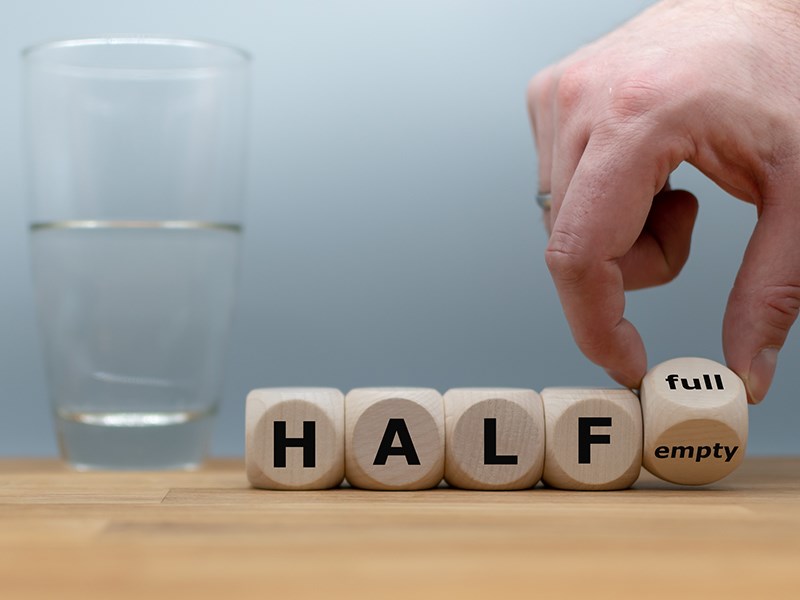I can recall times when I felt stuck and heavy as if downward forces of gravity had been increased, just for me. Even a slight smile would need muscular usage I didn’t have access to.
My mind sluggishly waded in dense quicksand and I was barely able to muster the energy to stare at the half-empty glass of water on my bedside table.
My automatic, negative thoughts said, “nah, don’t get up, not today, I don’t think so buddy. It’s just another dark wet day. Oh ya, you’re uninteresting, so there’s that, too.”
I thought, at that time, negative thinking couldn’t be fixed or challenged. Those thoughts were, like my hazel eyes or brown hair, part of me. Myself, my world and my future were being sucker punched by a broken cognitive process and a changeable neurochemical and cerebral reality.
Having chronic automatic negative thoughts is like putting mucky rainwater into your car instead of gasoline and expecting it to drive. And then, getting full of anger, resentment and self-loathing because your car is broken and you’re stuck going nowhere.
Cognitive, pharmacologic or a holistic intervention for any depression is getting help to find clean fuel and driving forward with all the parts running together smoothly, or as smoothly as possible considering the world we live in. That topic is for another time. Refocus.
Cancer or cardiovascular disease have treatments that give hope and a possible cure to the sufferer. Holistically, pharmacologically, most diseases have avenues of medical intervention. Depression has a social stigma attached that sometimes interferes with people receiving full and appropriate treatment.
If I told a person with multiple sclerosis or cancer to “snap out of it” or “you’ll be fine,” I would be considered a despicable creature, and justifiably so.
That being said, there is a stigma which permits similar, unintentional but damaging, social exchanges around depression and other mental illnesses. The stigma should end now.
Seasonal, major, atypical, bipolar, perinatal, PMDD and persistent depressive disorder are a few of the forms where depression manifests. Choices for methods of treatment vary between the degree and type of depression and an individual person’s situation.
There is an important place for sadness or melancholy in our human experience. It’s essential to our range of emotions. An example would be a deep grief or sadness we feel around the loss of a loved one. It’s an integral piece of our healing process.
In his epic book on depression, The Noonday Demon, author Andrew Solomon lucidly explains: “Grief is depression in proportion to circumstance; depression is grief out of proportion to circumstance.”
I have found some success with my management around depression and addiction with meditation, medication and other approaches that suited my case. From my experience, an open-minded holistic approach gives the best odds for success with treatment.
The glass is not half full or half empty, it can be wholly full, and that’s a good situation.
Robert Skender is a qathet region freelance writer and health commentator.
Join the Peak's email list for the top headlines right in your inbox Monday to Friday.



